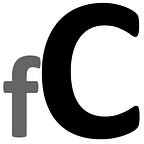What determines success? Is it natural or gifted?
As someone with a university education and parents that always pushed me to succeed and do well, I have often pondered whether my success is purely due to my own intelligence or if rather I have my generous socio-economic and social means to thank. Of course, both play a part, but I firmly believe that a lot of my success boils down to being given the right tools to do well all my life. I went to a good school, had parents and teachers who pushed me to get good grades, paid for tutors and encouraged me to pursue extra-curricular activities. My parents pushed me to pursue painting and art outside of school, paying for materials and classes. Developing these skills has given me the tools to approach all aspects of my life more creatively. This continuous level of support has ultimately not only given me the tools to learn but also the confidence within myself to try.
Attainment gap
It is well known that one of the biggest predictors of a child pursuing higher education is the education level of their parents. The state education system, including financial support for learning after compulsory schooling, is known to be heavily skewed towards university entrance. What opportunities are there for those who can’t afford to go to university (there is more to it than a student loan) or for whom it isn’t an attractive option?
Higher education has become almost synonymous with higher-income jobs. This perpetuates the wealth-education gap and limits upwards social mobility. But university is not synonymous with success either. It simply gives people the tools with which to unlock their own potential. It teaches and gives students the confidence to learn independently. These tools can also be unlocked through other modes of learning such as volunteering and apprenticeships such as those offered by futureCoders.
What does it mean to be ‘gifted’?
The terms ‘gifted’ and ‘talented’, are used to identify those who display ability in areas labelled as intelligence or creativity. Having the opportunity to display these is different from having the potential. Encouragement from the adults in children’s lives (be they parents, teachers etc) plays an extremely important part in their development. Constructive feedback is critical to achievement and is necessary for improvement. Furthermore, life outcomes and education outcomes are predicted by the level of resources and support young adults have (such as social support and positive attitudes around school). This encouragement and feedback can come from a variety of sources and having affordable access to skills development with positive mentoring and support is paramount.
Access is key
A young adult might not have access to a computer at home. Contrast this with a young adult who has their own personal computer. They might discover a love of programming and teach themselves lots of the transferable skills. However teaching yourself is difficult and it is much easier when you have the support systems around you. futureCoders aims to provide those support systems in an accessible way. What starts as access to a computer, with support, could start to narrow the achievement gap.
School catchment areas are socio-economically divided, the types of industries that settle between these areas can be limited. The digital landscape transcends this rigidity. Coding is an extremely important tool in the digital toolbox, as it helps improve problem solving skills and an understanding of technology. It all starts with having access to the right resources: a computer, internet access, support and encouragement.
At futureCoders our aim is to help people to access digital skills through coding. We believe that coding is an essential digital tool for everyone’s toolkit, no matter what job they do. All programmes include the learning of a programming language (either Python or Javascript) alongside participation in a team project where a real app is built. The simplicity of the app, and its distance from real life use depends on the level of learners skills and we cater for a range of experience from beginner to those who are ready to work on a live project.
Next week, we start another run of our successful Be More Digital programme. For beginners and improvers, we will be working towards making a simple content management system to sit behind a goal setting app designed to help young offenders on their journey out of offending. Start date is 25th November, we use collaborative online learning and look forward to working with another enthusiastic cohort with loads of potential. This programme is open to 18–28 year olds who are currently unemployed.
For more information on joining one of our learning programmes, ‘virtual’ work experience or how your company can help support people into digital careers, contact karen@futurecoders.org.uk
About the Author
Lila Rose, MA(SoSci) Psychology, University of Glasgow
